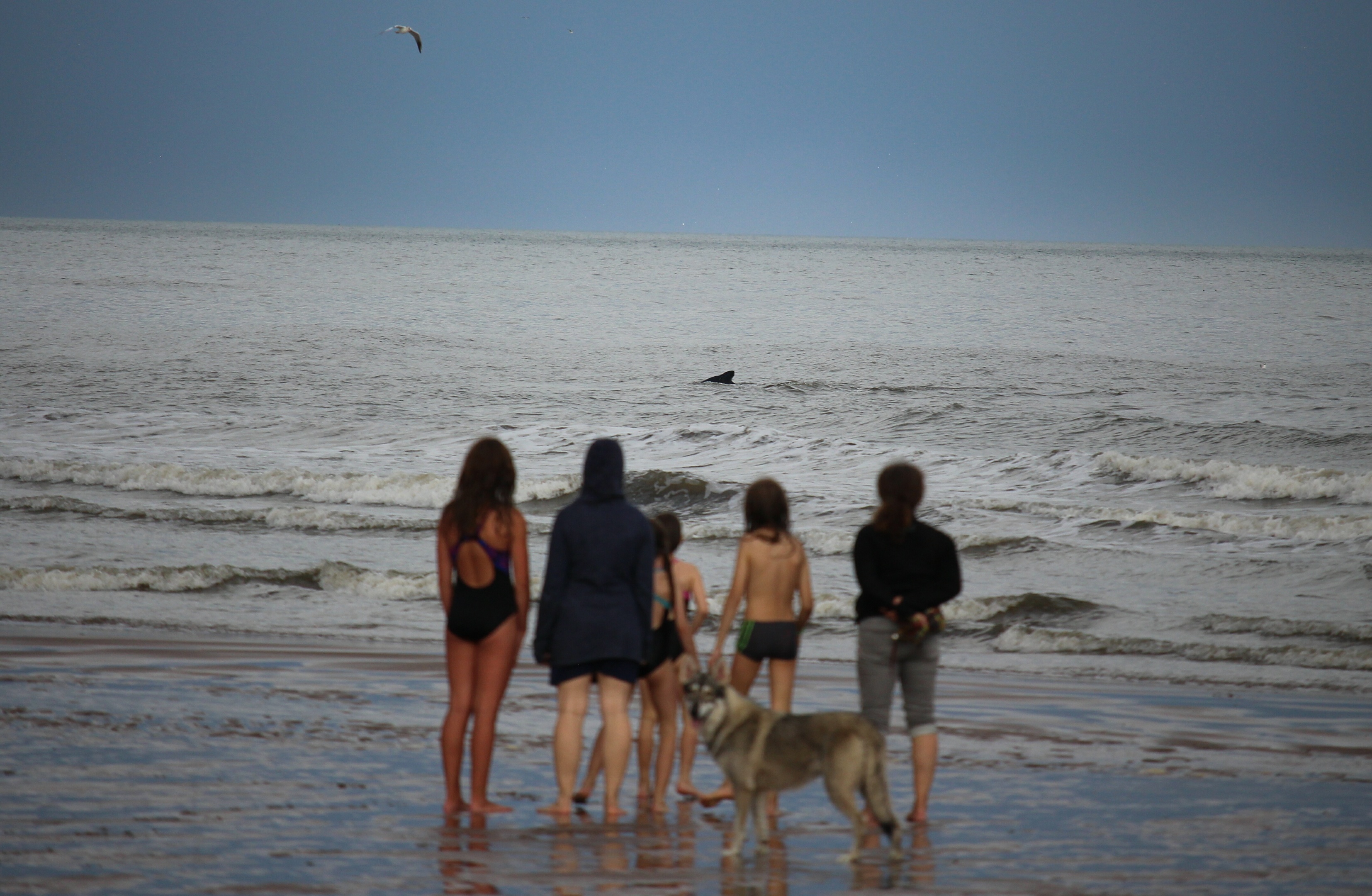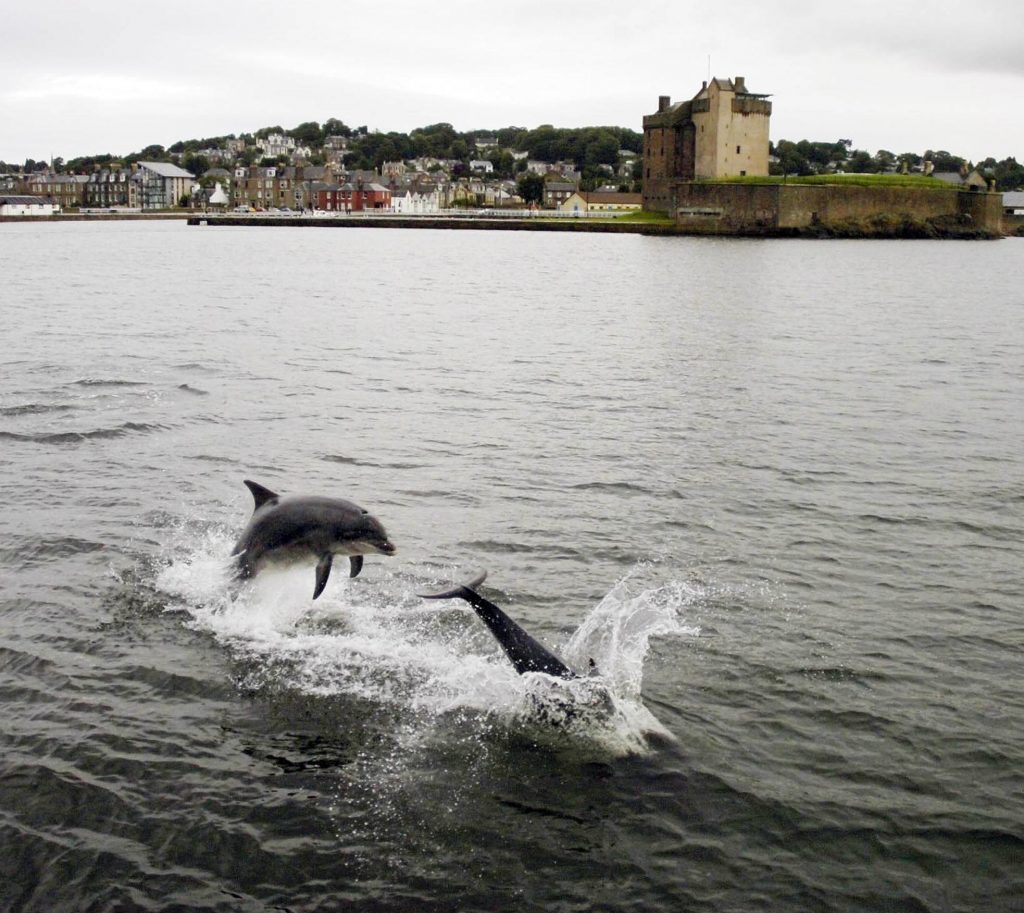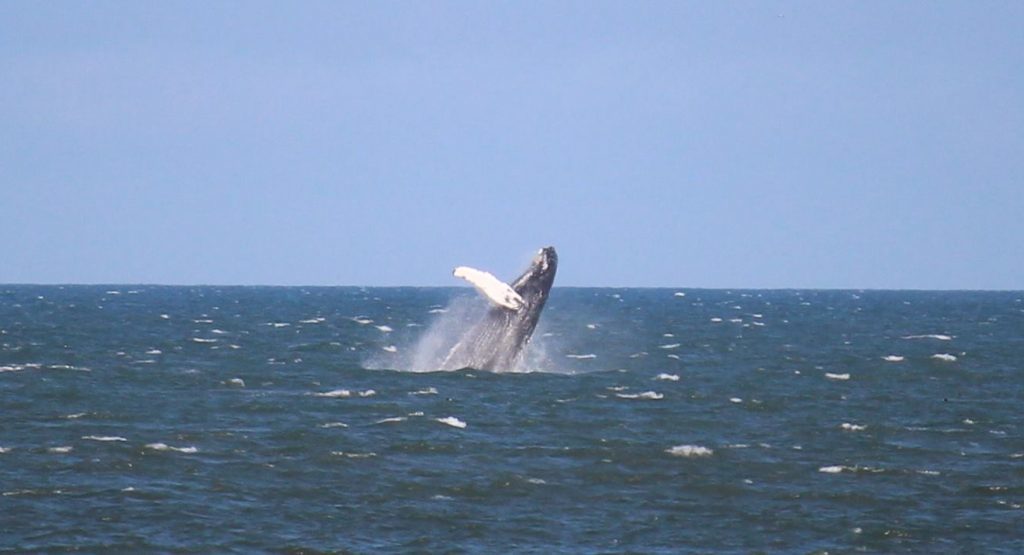Boat and marine craft operators have been accused of endangering dolphins and whales in Courier Country.
The Scottish Government-led Partnership for Action Against Wildlife Crime Scotland (PAW Scotland) is now urging operators to respect Scotland’s marine wildlife or risk criminal charges.
This follows a number of incidents around Scotland this summer which are being investigated by Police Scotland including ongoing issues on the Tay with jet skiers and dolphins, particularly near Broughty Ferry.
Members of the public have also raised concerns about boats going to close to humpback whales seen recently at St Cyrus National Nature Reserve.
Whales, dolphins and porpoises are protected under the Conservation (Natural Habitats) Regulations 1994.
This includes protection from disturbance, harassment, killing and injury, with offences subject to a fine of up to £5,000.
Sergeant Andrew Mavin, Police Scotland’s wildlife crime co-ordinator, said: “We’ve received several reports of boat operators getting far too close to cetaceans, sometimes apparently following them to get a good photograph.
“These animals are extremely powerful and people shouldn’t get too close for obvious reasons; there is also a possibility of injury to the animals themselves from boats and other marine craft.
“There are clear guidelines available for watching marine wildlife, so ignorance of the law is not an excuse.
“I encourage anyone witnessing a suspected crime to contact police Scotland on 101 as soon as possible.
“Details of the boat or craft are essential to help us identify the operator.”
Hundreds of people a day are descending on St Cyrus in the hope of catching a glimpse of the humpback whales.
The allure of seeing a giant whale is getting people who wouldn’t normally come to St Cyrus appearing off the Mearns coastline.
Dr Fiona Manson, Marine Ecology Advisor with Scottish Natural Heritage (SNH) added, “I’d encourage anyone visiting the coast for wildlife watching to read the Scottish Marine Wildlife Watching Code.
“It provides clear advice on how to act responsibly to keep within the law – and also on how to get the most out of your wildlife watching.”
If approached by cetaceans, boat operators are advised to reduce speed and cruise on a steady course heading away from the animals.
The best way to watch cetaceans is by going on one of the many dolphin and whale watches around the country, run by RSPB, Whale and Dolphin Conservation, and others.












